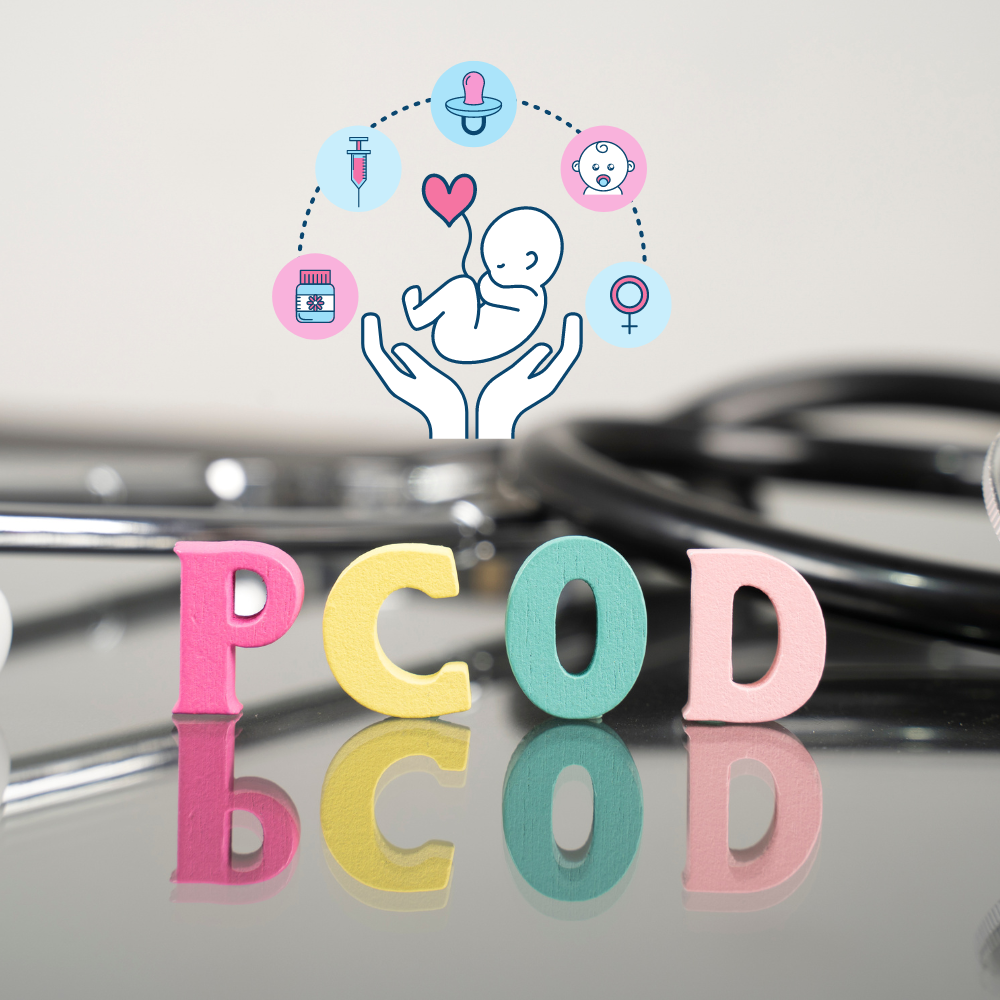Are you struggling to conceive and have been recently diagnosed with PCOD? You’re not alone. In fact, PCOD affects about 10% of women of reproductive age. In this blog post, we delve into the link between PCOD and fertility, and provide actionable tips to increase your chances of getting pregnant. Stay tuned!
Girls need to take care of their bodies and see a doctor if they notice any strange changes like gaining weight or getting hair in new places. There might be a problem called PCOD that needs medical help. It’s like finding out why your toy isn’t working and asking a grown-up for help to fix it.
PCOD is a problem that some girls and ladies have. It means that their body hormones are not working correctly, which can cause their eggs to stick together and make little lumps called cysts. If PCOD is not treated, it can stop a lady from having babies later on. It’s like when your toys don’t work the way they’re supposed to, and they get stuck together.
PCOD is a condition which can make it hard for some women to have babies. Women have special organs called ovaries that help make babies, and they make special hormones to do this. Sometimes, women with PCOD have too much of one special hormone that stops them from making a baby. They might have periods that are different from other women and some other problems too.
Polycystic Ovary Syndrome (PCOS) can manifest through various symptoms including hirsutism, mood swings, depression, insulin resistance, acne, weight gain, and oily skin. Women with PCOS are at greater risk of heart disease due to elevated triglycerides, low levels of high-density lipoprotein (HDL), high cholesterol, blood pressure (BP), and atherosclerosis. Additionally, PCOS is associated with the risk of breast, endometrial, and uterus cancers. If a woman experiences irregular periods, it increases the risk of uterus cancer.
Women with PCOD may face challenges with fertility, but it is still possible for them to conceive through medical intervention and lifestyle changes. A healthy diet that includes fewer carbohydrates and more fruits and vegetables, regular exercise, and maintaining a healthy weight are all important lifestyle changes that can help control PCOD and eventually improve infertility.
To manage PCOD, a diet consisting of green leafy vegetables, broccoli, antioxidant-rich fruits, fatty fish, and protein foods should be followed. Additionally, regular exercise, morning walks, yoga, and meditation should be included in the routine. Dairy products, red meat, junk foods and carbohydrate-rich foods should be avoided. Medication such as combination birth control pills, progestin therapy, and medication under the guidance of a fertility expert can help control symptoms. Laparoscopic surgery is an option to remove ovarian cysts that cause problems and restore normal ovarian function. Early diagnosis and treatment can help minimize adverse effects.




